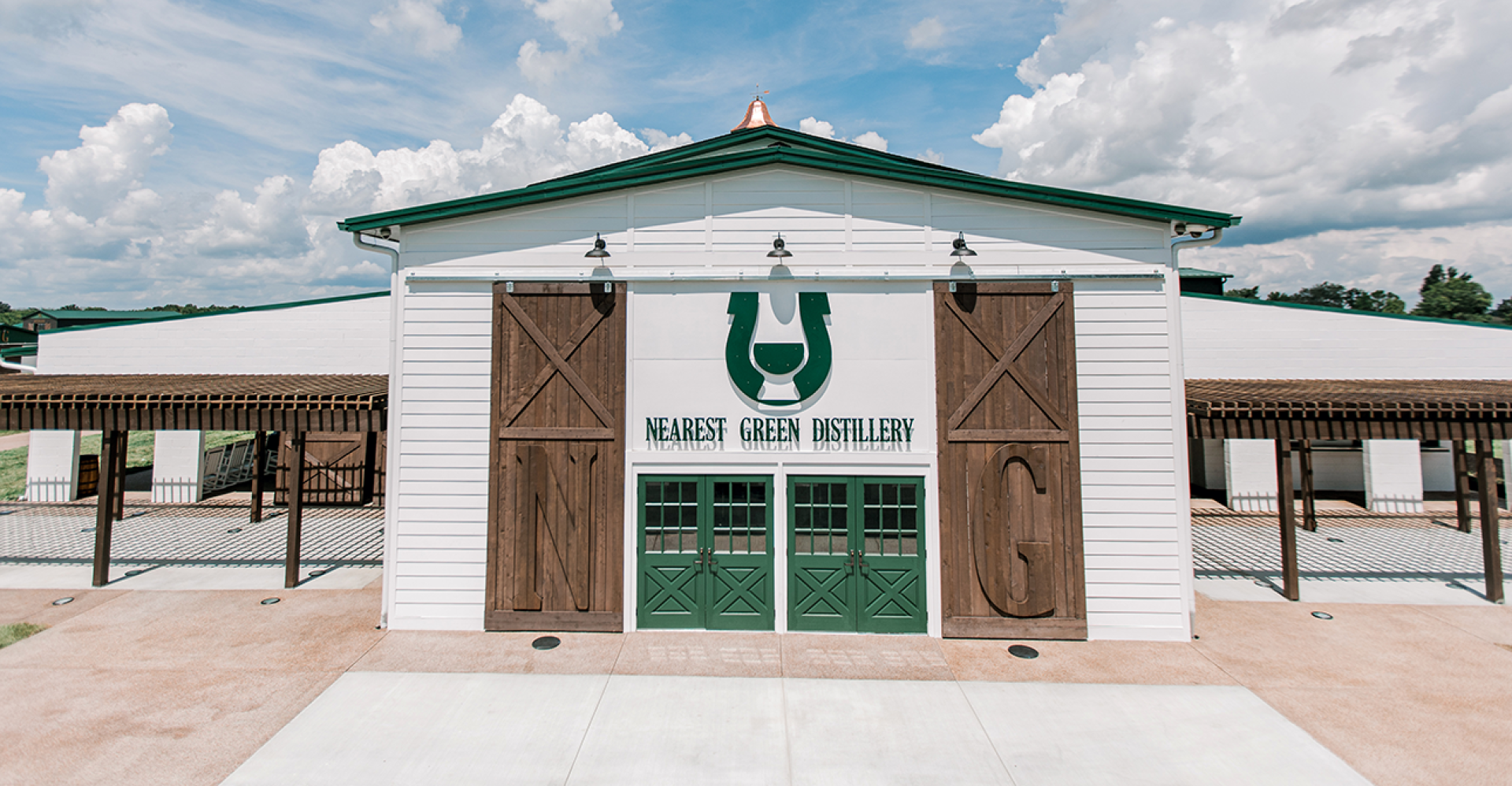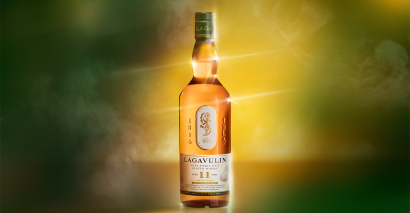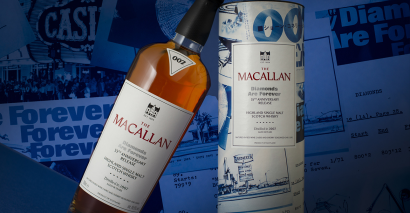
Stacy Preston Photography
After Falling into Receivership, Uncle Nearest's Future Is Uncertain
The decision comes after the Tennessee whiskey brand was hit with a $108 million lawsuit over unpaid loans
August 15, 2025 –––––– Danny Brandon
When entrepreneurs Keith and Fawn Weaver launched Uncle Nearest in 2017, it presented a remarkable piece of whiskey history that captured the imagination. The brand got its name and inspiration from Nathan “Nearest” Green, an enslaved man who made Tennessee whiskey in the 1850s and taught a young Jasper “Jack” Daniel the art of distillation. (After he was freed following the end of the Civil War, Green went on to be named the first-ever master distiller at the Jack Daniel Distillery.) As Nearest Green’s story spread among modern drinkers, so too did his namesake whiskey, with the brand quickly developing a name for itself. Just two years after its establishment, the brand opened its own visitor center, called Nearest Green Distillery, in Shelbyville, Tennessee, about half an hour away from Jack Daniel Distillery in Lynchburg.
The opening was just the first move in what the Weavers planned to be a four-stage expansion project, which also included a concession stand and alcohol-free speakeasy as part of a nearly $50 million build-out on its 323-acre campus. In March 2023, Uncle Nearest officially opened Humble Baron: an upscale event space complete with a full-service kitchen, two stages for live music performances, and the world’s largest bar at 518 feet long that offered cocktails, whiskey, and other spirits. A few months after that, the brand made headlines by announcing the acquisition of Domaine Saint Martin—a storied cognac house near the Charente River in France that dates back to 1669—and its 100 acre estate, including a distillery, cooperage, barrel cellar, and 50 acres of vineyards. The acquisition, which made Uncle Nearest the largest holder of grand champagne grape vineyards in the region, was meant to be a jumping-off point for the brand to explore other spirits. The following year, it doubled down by acquiring the rye-based vodka brand Square One Organic Spirits.
But just a few years later, all of these exciting plans have seemingly come to a screeching halt. After a fierce legal battle that has been raging on since the end of July, a judge has placed Uncle Nearest in receivership as a result its financial difficulties, and now its future is on the line.
The Cost of Expansion
At the heart of the receivership struggle is a $108 million lawsuit that was filed by its creditor, an agricultural lending cooperative named Farm Credit Mid-America, PCA, just a few weeks ago. The suit, whose ruling came August 14th, alleged that Uncle Nearest defaulted on several loans while violating multiple parts of its lending agreement. Weaver has called the lawsuit inaccurate, and part of an effort to smear her name. The lawsuit outlines, all of these loans were linked to Uncle Nearest’s expansion efforts.
The lion’s share of the debt is a revolving credit loan (a flexible plan without a fixed number of payments) which was first taken out in July 2022. The original loan covered $35 million, but that figure ballooned to $67 million by the following year. The filing points to a specific event on July 26, 2023, when the lender waived several events of default—allegedly caused by missed payments and a failure to submit financial statements on time—to increase the debt limit from $58 million to $67 million to facilitate Uncle Nearest’s purchase of Domain Saint Martin in France.
Those sizable increases were based on Uncle Nearest’s collateral, which Farm Credit says was mostly composed of its barrels, alongside bottled whiskey and grains. The financial reports given to Farm Credit initially put the brand’s borrowing base at an estimated $67 million at the time, but the lender claims that this figure was misrepresented. According to Farm Credit, on October 22, 2024—a few months after the loan was increased for the chateau deal—an on-site inspection of Uncle Nearest’s barrels stored at Tennessee Distilling found that the value was actually closer to $44 million. At the time of the discovery, the loan sat at just north of $65 million, and Uncle Nearest was immediately ordered to pay nearly $21 million to offset the discrepancy. In its response to the lawsuit, Uncle Nearest claimed that the collateral overstatement was perpetrated by former CFO Michael Senzaki, who allegedly acted independently and has since been fired. According to the filing, Senzaki “was the sole signee on all loan notices used to request funding secured by the barrels,” and exclusively handled inventory reports.
Around the same time the initial revolving loan was taken out, Uncle Nearest requested a separate term loan for $20 million. In March 2023, the brand approached Farm Credit for an additional $2.3 million in order to purchase a home on Martha’s Vineyard. According to the lawsuit, Uncle Nearest envisioned the space as a marketing opportunity, which could serve as a location to host events for the brand. There were also plans to potentially rent the space out to other producers, for co-branded events. In January 2025, Farm Credit noticed a discrepancy with the Martha’s Vineyard deal: The property was purchased by the Weavers through a separate third-party entity named UN House MV LLC. Farm Credit says that this LLC wasn’t an original party to the loan, which violates the terms of its loan agreement. The lender also claims that the LLC mortgaged that property for $1.7 million under a separate lender called Oaktree Funding Corp. Uncle Nearest claims that it was “fully transparent” about the purchase and purpose of the property, with employees and agents from Farm Credit attending its inaugural event. “Although the Plaintiff was aware that proceeds would be used for the MV Property, it did not request or, based on information and belief, take any action to perfect a security interest in the real estate, nor did it request closing documentation,” the response said.
In addition to these, there were a few other loans related to expanding the property in Tennessee. At the start of 2023, Uncle Nearest opened a $15 million line of real estate credit to fund the construction of its build-out at the Shelbyville campus. In June of the same year, it sought another term loan, this time to the tune of $1.7 million in order to buy a 108-acre property next to the distillery.
All things told, Uncle Nearest owes Farm Credit just north of $108.2 million, accounting for principal and interest across all of the loans. Farm Credit claims that the distillery has been in default since as early as January 2, 2024, and has continued to rack up further defaults in the months since then—with the most recent one occurring just weeks ago on July 22nd.
Financial Woes
The lawsuit hit Uncle Nearest during a downturn in the business, due largely to the shifting sands of the current whiskey landscape. In its heyday, when the market was in a much better place, the brand showcased a growth rate that was both consistent and impressive. According to our research arm Impact Databank, Uncle Nearest more than doubled its volume between 2018 and 2019, and then doubled it again between 2019 and 2020. By 2022, when the expansion campaign began in earnest, Uncle Nearest was nearly fourteen-times larger than it was during its first year of production—coming off a nearly 50% gain over the previous year to a new high of 140,000 cases (or around 1.68 million bottles). Today, it sits at an estimated 155,000 cases (around 1.86 million bottles), which is only around 3% larger than it was last year, according to Impact Databank. The brand is still growing, but it’s doing so at a far slower pace. Uncle Nearest’s ambitious expansion plans likely bet on its rapid growth trajectory, but now that sales have cooled amid an industry-wide slump, the brand just wasn’t able to drum up enough momentum to offset the expenses.
That theory seems to be backed up by a pattern of alleged financial difficulties at the brand, which were outlined in Farm Credit’s lawsuit. The suit alleged that Uncle Nearest had steadily operated at a loss for two full years—citing a “Failure to maintain a Consolidated Net Income of no less than $1.00 for each calendar month during the period commencing December 1, 2023, through January 31, 2025, as required by Section 7.11(b).” The lack of a profit month-over-month for two years certainly sounds bad on paper, but the true extent of Uncle Nearest’s financial woes wouldn’t be discovered until April 2025 when the brand fell into forbearance. Under its forbearance agreement, Uncle Nearest—which paid a mandatory $7 million at the start of the process—was required to maintain $1.5 million cash on hand at all times, with regularly submitted cash flow budgets and reports to keep track of the money. According to the filing, the interim chief financial officer showed a minimum of $1.5 million on May 12, 2025, but it’s alleged that the balance was closer to $261,000.
The same documents forecasted that the distillery would lose over $557,000 by the end of the first week, which would put it in the red by $296,000. Farm Credit says that, with those numbers, the distillery would need an immediate injection of $1,796,000 to hit its minimum balance, with additional weekly injections of $500,000 just to stay in the black. According to the filing, Fawn Weaver disputed the accuracy of this forecast, and “provided several updated cash flow forecasts with differing receipts and disbursements for the same time periods.”
The Path Forward
With Uncle Nearest going into receivership, the future of the brand is very much uncertain. The Weavers declined to comment on the situation or their forward plan for Uncle Nearest, but a few things can be gleaned from the Judge’s final order.
Chiefly, fans of Uncle Nearest may be happy to hear that Fawn, who has served as the face of the brand since its very inception, will very likely continue to play an active role for the remainder of its receivership. During the suit’s initial hearing on August 7th, Farm Credit said that it would “love to have Ms. Weaver marketing [Uncle Nearest].”
The bad news is that, due to an Agreed Order filed by the court, it’s uncertain exactly how the distillery is meant to carry out its day-to-day operations. The order holds that Uncle Nearest is restrained from disturbing, selling, or transferring any of its collateral without the approval of the court. Since the majority of Uncle Nearest’s collateral is made up of its barreled inventory, it seems like the distillery is prohibited from bottling and selling any of it without the court’s explicit permission. If the receivership ends up being a long-term arrangement, that order could potentially block or delay new expressions—or follow-up batches of existing expressions—from being released.
With so many big spirits companies hunkering down and closing the door to new acquisitions right now, it doesn’t seem likely that one will swoop in to deliver Uncle Nearest from its current state of peril. In a perfect world, Brown-Forman might have seemed like an obvious choice—given the shared history between Jack Daniel and Nearest Green—but that too seems very unlikely. Like many others, Brown-Forman has also been trying to shed some of its excess weight, selling off its Sonoma-Cutrer wine label last May and closing its famed Louisville cooperage this January.




.png?resize=410x0)